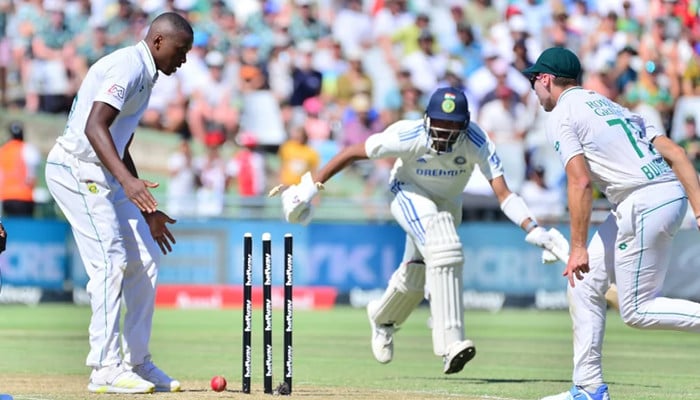In the last 122 years of Test cricket history, the record for most wickets fell on the first day of the game became.
23 wickets fell on the first day of the Cape Town Test between India and South Africa.
This is the record for most wickets on the opening day of the game since 1902.
In 1902, 25 wickets fell on the first day of the match between England and Australia. In 1890, 22 wickets fell on the first day of play.
This is the fourth most wickets taken in any day overall in the Cape Town Test.
In 1888, 27 wickets fell on the second day of the England vs Australia match, similarly in 1896, 24 wickets fell on the second day of the Oval Test.
24 wickets fell on the second day of the Chennai Test between India and Afghanistan in 2018.
23 wickets fell on the second day of the 2011 Test between South Africa and Australia in Cape Town.
setTimeout(function(){
!function(f,b,e,v,n,t,s)
{if(f.fbq)return;n=f.fbq=function(){n.callMethod?
n.callMethod.apply(n,arguments):n.queue.push(arguments)};
if(!f._fbq)f._fbq=n;n.push=n;n.loaded=!0;n.version=’2.0′;
n.queue=[];t=b.createElement(e);t.async=!0;
t.src=v;s=b.getElementsByTagName(e)[0];
s.parentNode.insertBefore(t,s)}(window,document,’script’,
‘https://connect.facebook.net/en_US/fbevents.js’);
fbq(‘init’, ‘836181349842357’);
fbq(‘track’, ‘PageView’);
}, 6000);
/*setTimeout(function(){
(function (d, s, id) {
var js, fjs = d.getElementsByTagName(s)[0];
if (d.getElementById(id)) return;
js = d.createElement(s);
js.id = id;
js.src = “//connect.facebook.net/en_US/sdk.js#xfbml=1&version=v2.11&appId=580305968816694”;
fjs.parentNode.insertBefore(js, fjs);
}(document, ‘script’, ‘facebook-jssdk’));
}, 4000);*/



